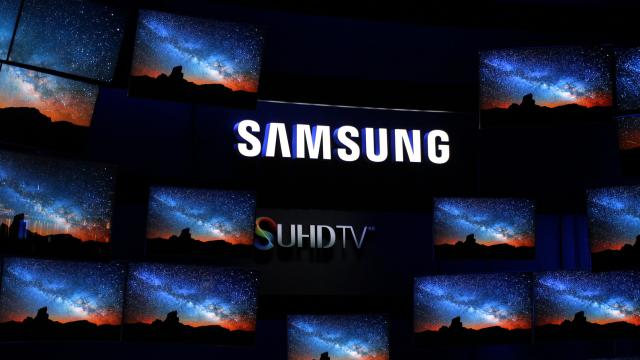A series of tests by EU-funded research group ComplianTV suggest that Samsung TVs use more power in real-life conditions than they do when undergoing efficiency tests.
Some Samsung TVs feature a ‘motion lighting’ feature that’s supposed to reduce brightness, and thus power consumption, when fast video motion is detected. But, as The Guardian reports, the EU study showed that, while the feature kicks in during international electrotechnical commission (IEC) test conditions, in a day-to-day setting no such power reductions are observed.
While ComplainTV had published anonymized findings earlier this year, more detail was provided at a Royal Society event earlier this week. While there’s no evidence that Samsung has been acting illegally, The Guardian has approached the European commission, which has now “pledged to outlaw the use of defeat devices within the bloc’s TV ecodesign regulations, and said that any allegations of their use would be fully investigated.”
Comparisons with Volkswagen’s practices are, perhaps, inevitable. A Samsung spokesperson told The Guardian:
“There is no comparison [between motion lighting and VW defeat devices]. This is not a setting that only activates during compliance testing. On the contrary, it is an ‘out of the box’ setting, which reduces power whenever video motion is detected. Not only that, the content used for testing energy consumption has been designed by the International Electrotechnical commission to best model actual average picture level internationally.”
You might think a smattering of TVs using more energy than expected may not bring the Earth to its knees, but it’s estimated that televisions consume up to 10 per cent of a household’s electricity use. Certainly, it’s been enough for a number of EU states — including Sweden and the UK — to complain. Could this be the start of TVgate?
[Guardian]
Image by Maurizio Pesce under Creative Commons licence
